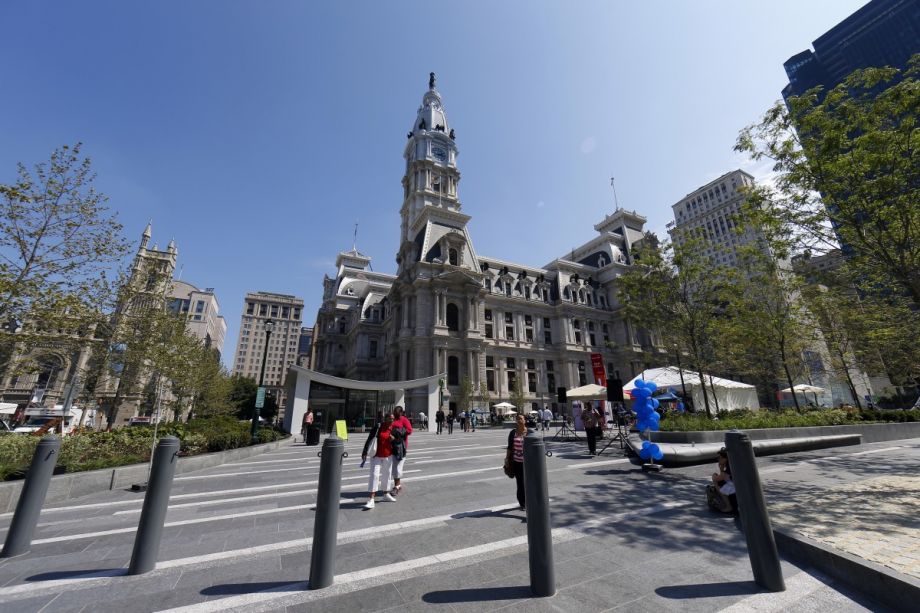In the end, the mayor didn’t even have to veto the bill.
In the hours before Philadelphia City Council was scheduled to start its fall session last week, Philadelphia Mayor Jim Kenney and City Council officials announced that they had reached a compromise deal on adding money to the city’s affordable housing trust fund, abandoning a plan to impose a one-percent tax on new construction projects in the city.
As Next City reported in June, the construction tax proposal grew out of years of discussions about bolstering the housing trust fund and was supported by a narrow majority of city councilmembers in a 9-8 vote on the last day of the spring session.
Kenney held off on signing the bill all summer, leading many to believe he would veto it. Instead, city council sponsors agreed to recall the legislation last week, after the administration committed to allocating at least an additional $53 million to the housing trust fund over the next five years. The funding is expected to come through annual appropriations from the general fund of revenue that’s newly collected from properties that are coming off of Philadelphia’s contentious citywide ten-year property tax abatement.
In a statement, Kenney said that councilmembers and advocates had negotiated the compromise in “good faith” over the summer.
“All of us share the same goal — ensuring that residents have access to housing options no matter what their financial situation,” Kenney said in the statement. “This new revenue will be a reliable way to achieve that goal.”
In addition to the $53 million committed by the administration, City Councilwoman Maria Quiñones-Sánchez plans to amend an inclusionary zoning policy she had previously introduced, raising the fees on developers seeking height and density bonuses. That amendment could generate an additional $18 million over five years, bringing the total to $71 million in new housing trust fund dollars over that period, though administration officials warned that $18 million was the most optimistic projection for developer participation in the bonus program.
“I hope that the increased fees don’t discourage people, but I’m very optimistic,” Sánchez told reporters after the meeting last week.
Sánchez and housing advocates have been pushing for the administration to add at least $20 million a year to the housing trust fund. While the deal falls short of that goal, Sánchez said she’s going to continue pushing to get $100 million added to the fund over the next five years.
Beth McConnell, policy director for the Philadelphia Association of Community Development Corporations, had been urging Kenney to sign the construction tax bill most of the summer. But she said she’s encouraged by the deal that the administration struck with city council, and will continue to push for more dedicated funds over time. According to McConnell, the deal is evidence that an equitable development campaign, which the association has helped spearhead since releasing a policy platform during the 2015 mayoral and council elections, is bearing fruit.
“We launched a campaign four years ago to double the housing trust fund,” McConnell says. “We’re on the verge of doing that today. We launched a campaign a year ago to get inclusionary zoning. We’re on the verge of a voluntary density bonus program that we hope is going to be really attractive. So I feel like we’re headed in the right direction.”
The mayor and all members of city council will face voters again in a primary election next spring. In the four years since the last election, concerns about affordable housing in the city have only grown. Later this month, the Kenney administration is expected to release its first-ever comprehensive housing plan, as PlanPhilly has reported. Expanding the housing trust fund, which helps pay for affordable housing construction and preservation as well as home repairs and homelessness prevention programs, has been a priority for advocates.
Advocates in other cities have been fighting for infusions to their local housing trust funds as well. In November, voters will decide whether to approve a $50 million bond referendum supporting the housing trust fund in Charlotte. A group of activists in Baltimore recently secured a $20 million commitment from Mayor Catherine Pugh for an affordable housing trust fund that was created via a ballot measure two years ago. The city of Alexandria, Virginia, is planning to raise the local tax on restaurant meals and steer the proceeds to its housing trust fund. In Oregon, a number of cities have been adopting construction excise taxes and allocating the revenue to affordable housing efforts.
But the construction tax proposal in Philadelphia never had a veto-proof majority of councilmembers behind it. Advocates say they’ll take the commitment from the mayor as a win and keep fighting for more resources.
“I think this is a real commitment by both the mayor and city council that we’re going to make this a priority in the city,” Sánchez said.

Jared Brey is Next City's housing correspondent, based in Philadelphia. He is a former staff writer at Philadelphia magazine and PlanPhilly, and his work has appeared in Columbia Journalism Review, Landscape Architecture Magazine, U.S. News & World Report, Philadelphia Weekly, and other publications.
Follow Jared .(JavaScript must be enabled to view this email address)
















